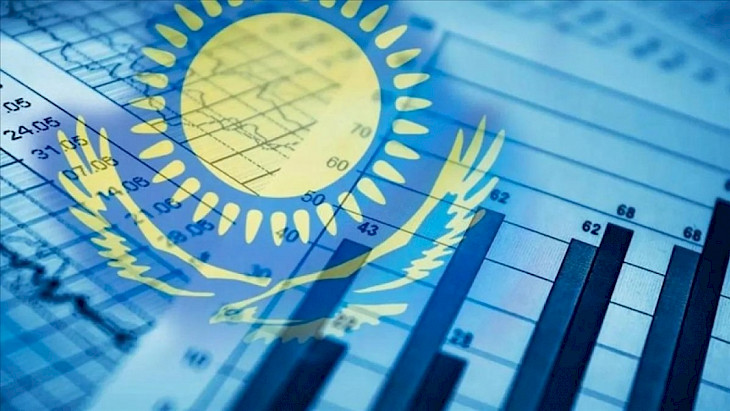Among the countries in Central Asia and the CIS, Kazakhstan holds the leading position in terms of Gross Domestic Product (GDP) volumes, Finprom reports.
According to estimates by analysts from the International Monetary Fund (IMF), Kazakhstan's GDP is expected to reach $259.3 billion in current prices in 2023, marking a 15% increase in value (an absolute increase of $33.8 billion) compared to 2022, representing the most significant growth in the region.
The report notes that Kazakhstan's GDP exceeds the combined GDP of countries such as Uzbekistan, Belarus, Georgia, Armenia, Moldova, Kyrgyzstan, and Tajikistan.
Only Russia, one of the world's largest economies, surpasses Kazakhstan with a projected GDP of $1.86 trillion in 2023.
IMF economists predict that by 2028, Kazakhstan's GDP will reach $354.7 billion, showing a 36.8% increase, or $95.4 billion more in value compared to the current year. This also represents the most substantial indicator among the countries in the region, excluding Russia.
President Kassym-Jomart Tokayev has set a more ambitious task for the government: to double Kazakhstan's economy by 2029, increasing the GDP to $450 billion.
This ambitious goal will be achievable with a stable economic growth rate of no less than 6% per year, with a significant role assigned to the implementation of projects in the manufacturing industry.
A similar situation is observed regarding GDP per capita: in Kazakhstan, the forecasted indicator for the current year is almost $13,000, nearly equivalent to Russia.
This is 11 times higher than in Tajikistan, 7.1 times more than in Kyrgyzstan, 5.2 times more than in Uzbekistan, 2.5 times more than in Ukraine, and so on.
An annual growth rate of 13.7%, or $1,600, is expected, with the indicator projected to increase by 29.9%, or $3,900, to $16,800 by 2028 — the highest in the region.
Effectively, it is anticipated that GDP per capita in Kazakhstan will be the highest among all countries in Central Asia and the CIS, including the larger Russia, starting from 2024.
CentralasianLIGHT.org
December 25, 2023

